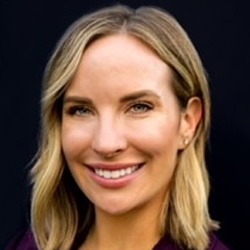What Can We Do To Prepare Nursing Leaders to the Executive Role That Will Arm the Next Generation?
![]() Print this Article | Send to Colleague
Print this Article | Send to Colleague
 By Caitlyn Broyles, TONL District 8 Director
By Caitlyn Broyles, TONL District 8 Director
In early 2021, TONL examined the current challenges in healthcare management and the need to integrate high-potential clinicians and young careerists. Traditionally, nurse executive training included years of experience. This paradigm may overlook many young nurse leaders that seek this path.
We designed an 18-month hospital-based nurse executive residency program to accelerate training and introduce C-Suite sub-specialty practical experience. Eligibility included a young careerist with less than 6 years of nursing experience, high performing leader, interested in progressing to the executive level. Completion of a post-graduate degree is required along with peer interview panel approval.
Practicing to the full extent of education and training (IOM 2021) remains a focal point for our pilot program and necessitates a commitment to education, exposure, and experience. We utilized the KIPP learning framework, AONL, and ACHE executive competencies. Concepts include:
- Professionalism
- Relationship management and communication
- Business skills
- Knowledge of the healthcare environment
The pre-planning phase takes a lens at the span of responsibilities for executives in practice. The orientation phase starts from 0-6 months and comprises of climate exposure to the C-Suite team, clinical, and business operations. The resident then rotates through at least two different acute care facilities for 2 6 months with CNO guidance. The implementation phase occurs next from 7-18 months. Here, assigned projects are delivered with resident feedback on critical thinking, analysis, and problem-solving skills. After 18 months, the resident is ready for full-time placement in a nursing executive role. “I’ve learned to maximize my resourcefulness. The assignments and responsibilities I have been given are allowing me to develop analytical, leadership, finance, and operational skills.” Stated Caitlyn, Resident.
The following are just a few expected outcomes and impacts: acceleration of pipeline for chief officers, increased retention, mentorship, collegial partnerships, career growth, and improve workforce solutions. This pilot will expand to affiliated divisions and enterprise facilities across the United States. The application for this pilot can be reviewed and shared for immediate implementation.
Lessons already observed:
- Engage and practice high-level conservations from the boardroom to unit leaders
- Experiential learning has offered insight for improving communication and negotiation skills, and collaboration with senior leaders for relationship building
- Stretch assignments and projects can be safely managed when prioritized strategically with CNO guidance
This program offers extreme opportunity in a short amount of time. We are in a precarious state in healthcare, preparing and training successors is needed now more than ever.

